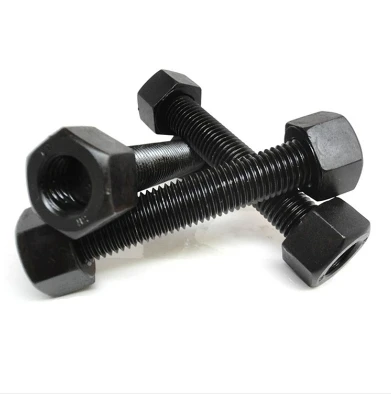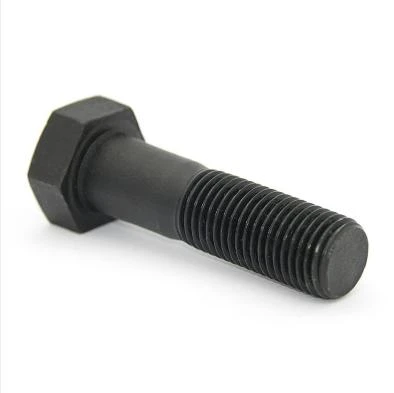stud bolt
Jan . 09, 2025 10:50 Back to list
stud bolt
Stud bolts are an essential fastener in the world of industrial applications, widely recognized for their durability, versatility, and ability to ensure structural integrity in high-stress environments. These dual-threaded rods are designed to handle both tension and compression, making them indispensable in industries such as oil and gas, construction, and manufacturing. Having witnessed the evolution and application of stud bolts over decades, professionals understand that the right choice of materials and specifications can significantly impact the efficacy and longevity of the project.
Trustworthiness in stud bolts is also reinforced through rigorous testing and verification processes. A credible supplier will subject their products to fatigue testing, tensile strength assessments, and corrosion resistance trials. Only those products that pass these stringent tests should be considered for high-stakes applications. Furthermore, the traceability of materials used in the manufacturing process should be documented meticulously, enabling stakeholders to verify the authenticity and origin of the components. For new entrants into the field or those looking to refine their use of stud bolts, learning from seasoned professionals can be invaluable. Industry veterans often share practical insights, such as the importance of using lubricants during installation to reduce friction and allow for more accurate tensioning. They also emphasize regular inspection and maintenance of installed bolts to detect any signs of wear or loosening, which can pose serious risks if left unaddressed. In conclusion, the effective use of stud bolts hinges on a combination of sound expertise, adherence to authoritative standards, and a commitment to quality and reliability. As industries continue to demand solutions that offer enhanced safety and performance, the role of these fasteners is more critical than ever. Embracing the latest advances in materials science and installation techniques ensures that stud bolts remain a linchpin in modern engineering, securing structures and machinery that shape our world.


Trustworthiness in stud bolts is also reinforced through rigorous testing and verification processes. A credible supplier will subject their products to fatigue testing, tensile strength assessments, and corrosion resistance trials. Only those products that pass these stringent tests should be considered for high-stakes applications. Furthermore, the traceability of materials used in the manufacturing process should be documented meticulously, enabling stakeholders to verify the authenticity and origin of the components. For new entrants into the field or those looking to refine their use of stud bolts, learning from seasoned professionals can be invaluable. Industry veterans often share practical insights, such as the importance of using lubricants during installation to reduce friction and allow for more accurate tensioning. They also emphasize regular inspection and maintenance of installed bolts to detect any signs of wear or loosening, which can pose serious risks if left unaddressed. In conclusion, the effective use of stud bolts hinges on a combination of sound expertise, adherence to authoritative standards, and a commitment to quality and reliability. As industries continue to demand solutions that offer enhanced safety and performance, the role of these fasteners is more critical than ever. Embracing the latest advances in materials science and installation techniques ensures that stud bolts remain a linchpin in modern engineering, securing structures and machinery that shape our world.
Next:
Latest news
-
Unlocking Industrial Strength: The Complete Guide to Better Bolts
NewsNov.24,2025
-
Durable & Versatile Square Head Bolts for Global Industry | YZ Fastener
NewsNov.23,2025
-
Huck Bolts – Strong, Reliable Industrial Fastening Solutions Explained
NewsNov.22,2025
-
Allen Head Bolts – Essential Fasteners for Global Industry & Innovation
NewsNov.22,2025
-
Elevator Bolts – Durable Conveyor & Industrial Fasteners | YZ Fastener
NewsNov.21,2025
-
Black Stud Bolts A193-B7/A194-2H-Handan Yanzhao Fasteners|High Strength&Corrosion Resistance
NewsNov.21,2025
